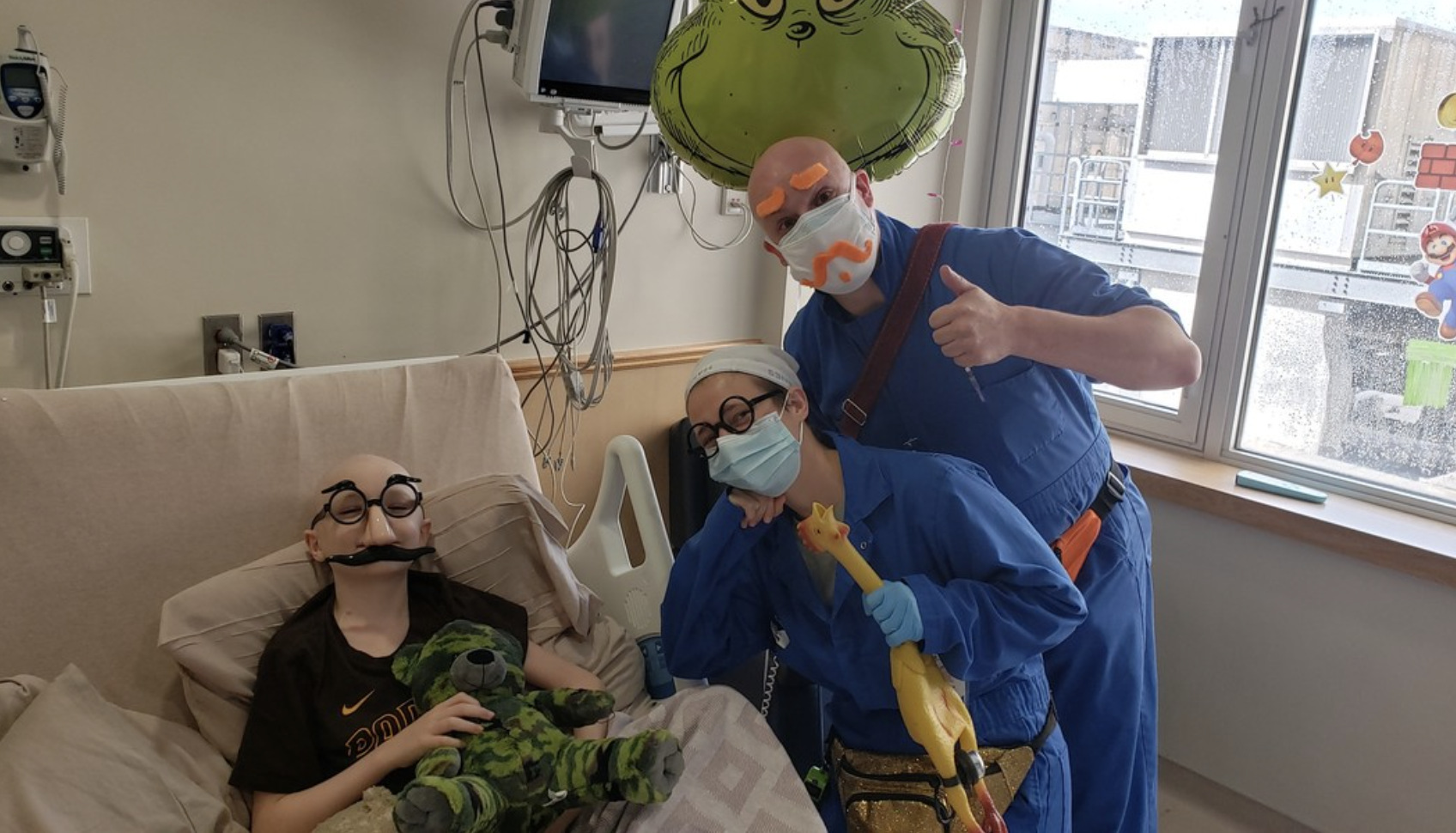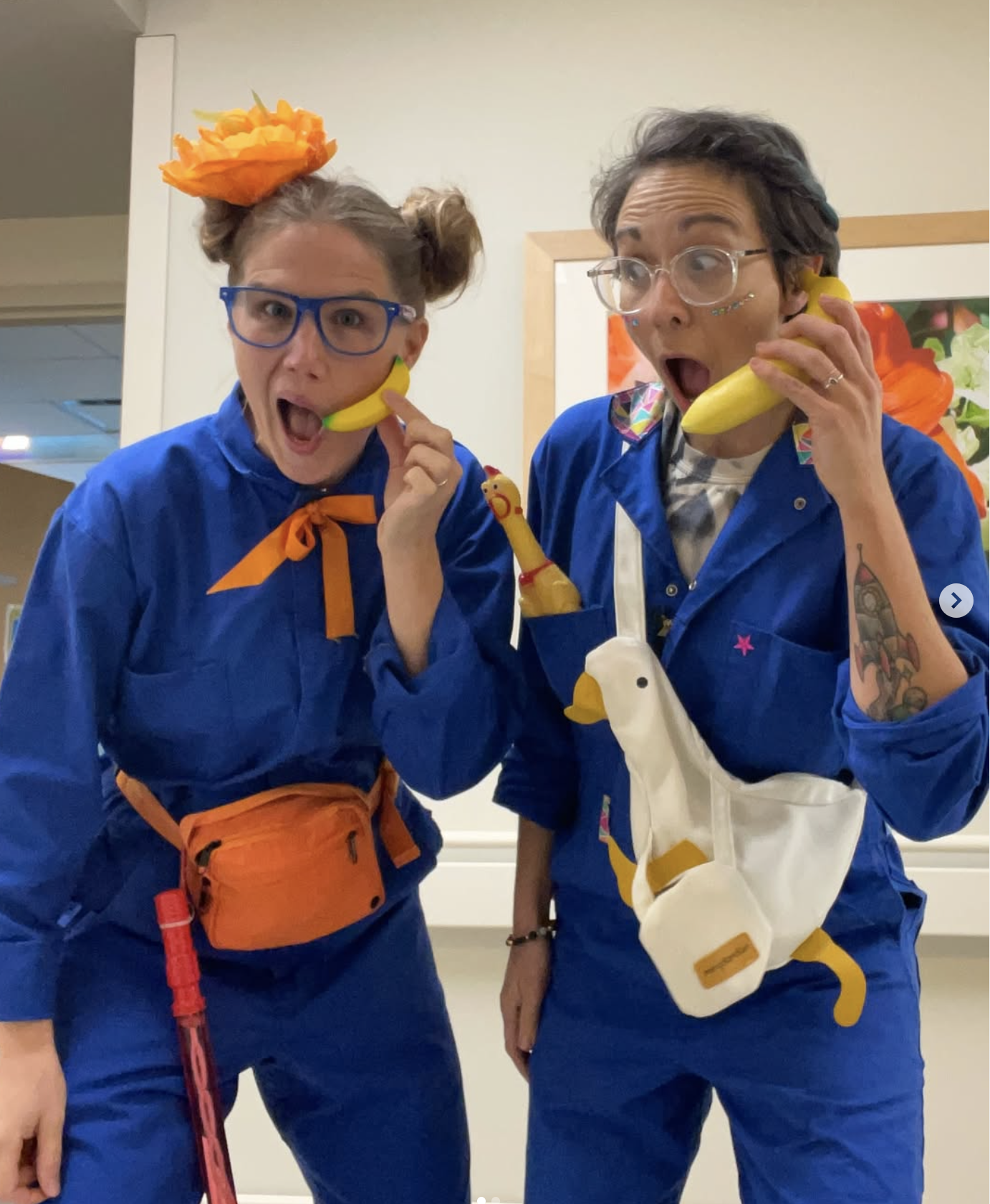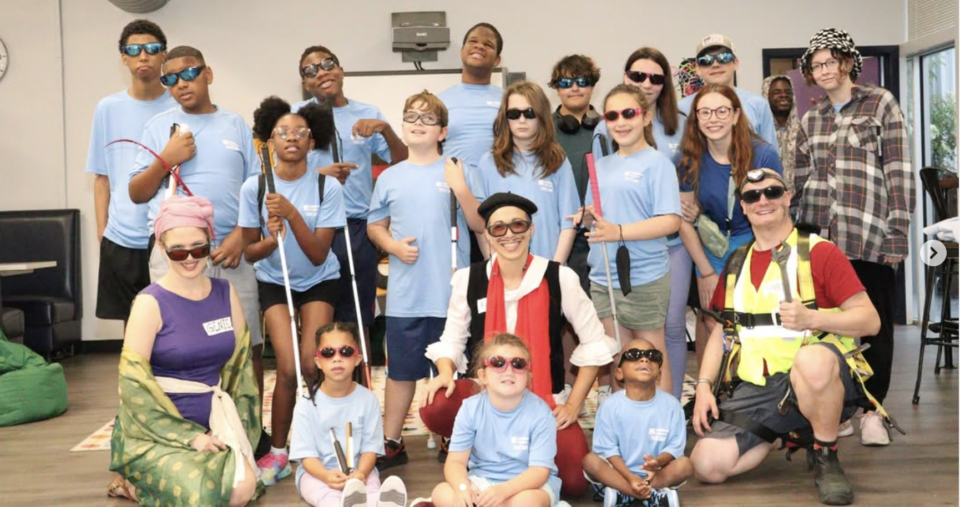At the core of New Orleans’ vibrant community, a group of dedicated healthcare clowns is bringing a unique form of healing to hospitals, shelters, and care facilities. Prescription Joy, co-founded by Alex Smith and Becca Chapman, is a nonprofit organization that uses the power of play, improvisation, and human connection to bring joy and relief to patients, families, and medical staff alike.
Their journey began with backgrounds in theater and performance, but a shift toward healthcare clowning was sparked by personal experiences with injury and healing. After intensive training with experts in the field, they launched Prescription Joy in 2018, determined to make joy an essential part of patient care. Through their rigorous training and experience, the clowns have developed skills in trauma-informed care, improvisational performance, and empathetic engagement, making their interactions with patients deeply impactful.

The Healing Power of Joy
Today, Prescription Joy operates in multiple hospitals, including Ochsner Hospital for Children, Manning Family Children’s, and local women’s and children’s shelters. Their trained clowns work in duos or trios, using playfulness, music, and empathy to meet patients where they are. They also tailor their approach based on the needs of each patient, ensuring that every interaction is meaningful and suited to the moment. “We go in and we help when there’s tension,” says Chapman. “And sometimes that tension can be through laughter or wonderment, or sometimes it’s finally a chance for a kid to cry or be angry.”
Beyond patient visits, the organization has also developed partnerships with Lighthouse Louisiana and memory care facilities to adapt their work for people with vision differences and those experiencing dementia. This expansion has allowed them to reach more vulnerable populations, demonstrating that their methods can be beneficial for people of all ages and backgrounds.
Empowering Children Through Play
One of the core philosophies of Prescription Joy is giving children a sense of agency. In a medical setting where so much is out of their control, the ability to say “no” to a clown’s visit—or to dictate how an interaction unfolds—can be incredibly empowering. “There are very few people [in a hospital that a child] can tell ‘no,’” Smith says. “We walk in and ask, ‘Hey, can we come say hi?’ and they have the power to say ‘no.’ That’s really empowering.” This freedom provides children with a rare opportunity to feel in charge of their environment, even if just for a moment. It’s not just about laughter—it’s about restoring dignity and choice to patients in vulnerable situations.
Their impact extends beyond patients. Hospital staff, who are often under immense pressure, have come to rely on Prescription Joy as a morale booster. Whether it’s a silly gag in a hallway, an impromptu dance break, or a small act of kindness, these moments of levity help medical professionals reconnect with their own humanity. Chapman explains, “When you see someone with a funny orange mustache, you just feel permission to open up, and they hold space for staff members that were processing the grief after.” Smith also jokes, “It is fascinating what people will tell a clown.”

Looking to the Future
Moving forward, Prescription Joy aims to broaden its presence in hospitals and care facilities, introduce a certification program for healthcare clowning, and develop stable career opportunities for artists dedicated to using their talents for therapeutic purposes. They are also developing new programs, such as playwriting initiatives for hospitalized children, to further enhance creative expression in medical settings. Through this initiative, children can write their own plays, which are then performed by trained actors, providing them with an outlet for self-expression and storytelling.
Prescription Joy’s mission is fueled by the belief that joy is an essential part of wellness, and their work reflects this philosophy in every interaction. Whether they are helping a child through a tough procedure, bringing a smile to a worried parent, or providing a moment of relief for an overworked nurse, their presence makes a profound difference. Their dedication to human connection and the therapeutic power of laughter has made them an indispensable part of the healthcare community.
Supporting the Mission
For those looking to support their work, Prescription Joy welcomes donations, sponsorships, and connections to healthcare institutions that could benefit from their services. They also encourage individuals and organizations to help spread the word about their mission, ensuring that more people can experience the transformative effects of their unique approach to healing.
“Because the hospitals are seen as so serious—and they have to be—people forget that in hospitals, you have people fighting to live,” says Chapman. “You need to give them a taste of what living is like, so they can continue to fight.”
Prescription Joy isn’t just about making people laugh—it’s about fostering connection, agency, and resilience in the face of adversity. Their work proves that sometimes, a little bit of joy can be the best medicine of all. For more information, prescriptionjoy.org.
View this post on Instagram

